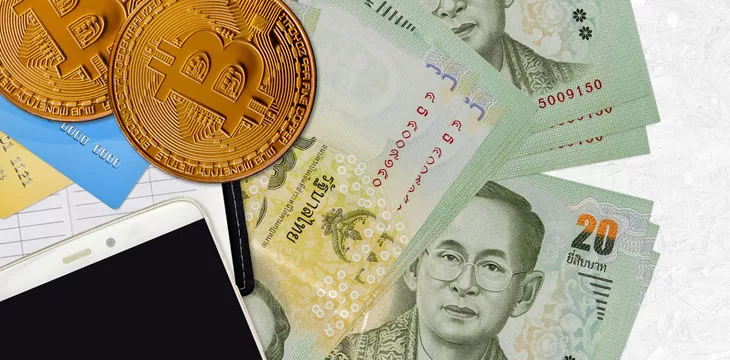|
Getting your Trinity Audio player ready...
|
Thailand’s banking regulator, Bank of Thailand, has confirmed its interest in central bank digital currencies (CBDCs) by announcing a pilot program for a digital baht.
Local news outlet Bangkok Post reported the central bank’s latest study is focused on a retail CBDC scheduled to run between June and August. The report notes that the central bank will collaborate with a trio of financial institutions in the country—the Bank of Ayudhya (Krungsri), 2C2P, and Siam Commercial Bank (SCB).
The pilot, taking place in a regulatory sandbox, will allow participating institutions to experiment with a digital baht with minimal interference from the central bank. Krungsri’s model relies on participating employees and merchants to download a specific mobile banking application to interact with the CBDC.
The CBDC users can pay for goods and services at participating stores using QR codes, but there are plans to expand payment functionality in subsequent tests. Managing Director of Krungsri Innovate Sam Tanskul revealed that the pilot does not impose a transaction limit. Instead, it is focused on system resilience in peak periods.
“The bank educated both merchants and staff about retail CBDC before launching the pilot project, and the testing has run smoothly,” said Tanksul.
It appears the CBDC experiments of other participating institutions will adopt the same model. SCB’s strategy closely follows Krungsri, with the bank’s employees and merchants around its headquarters forming the nexus of the pilot’s participants.
The central bank expects the total number of participants to hover around the 10,000 mark while viewing the project as a “pilot to learn” instead of a pilot launch. At the moment, the banking regulator has not made public any official plans to proceed with the launch and is content to adopt a slow-and-steady approach to a retail digital baht.
Experts submit that the banking regulator may throw its full weight behind the launch of retail CBDCs if the pilot shows promise in easing the intensity of transactions of the national PromptPay. The CBDC may be deployed in “state welfare payments” or for loan schemes for small and medium-scale enterprises (SMEs).
Cautious plan for CBDCs
Despite the heated pace of CBDC development, several countries opt for a conservative approach in launching digital versions of their currencies to avoid potential pitfalls.
The Reserve Bank of India (RBI) has confirmed that it will be proceeding with caution on developments for a digital rupee, along with plans to onboard 1 million users and expand the retail pilot program to more cities.
Central banks are keen on avoiding the risks of low CBDC adoption and bank disintermediation, which are challenges associated with a hurried approach to launching CBDCs.
To learn more about central bank digital currencies and some of the design decisions that need to be considered when creating and launching it, read nChain’s CBDC playbook.
Watch: Central Bank Digital Currencies and Blockchain: The view from the Swiss National Bank

 07-12-2025
07-12-2025 





